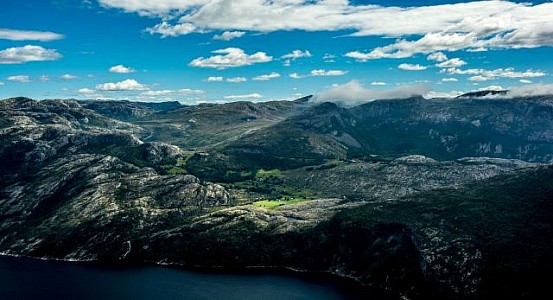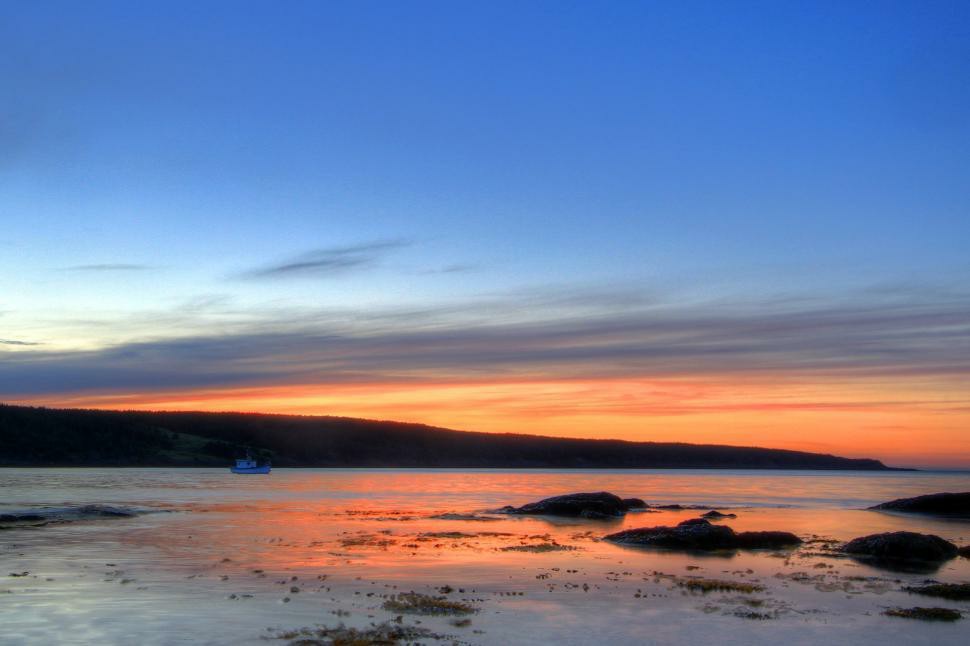[亨利梅因:国际法Lecture6]LECTURE VI. THE DECLARATION OF PARIS.One point of considerable interest in International Law is the very different degree of durability which the various parts...+阅读
LECTURE IV. TERRITORIAL RIGHTS OF SOVEREIGNTY.
All the department of International Law with which I was occupied at the close of my last lecture, the acquisition by a State of unappropriated territory; has been much influenced by the Roman Law. What takes place may still be described by the Roman phrase occupatio. The fundamental rule is the same in the original and in the derivative system. In order that new lands may be appropriated, there must be physical contact with them, or physical contact resumable at pleasure, coupled with an intention to hold them as your own. The leading precedent in such cases is the controversy as to the status of the Oregon territory and as to the mode in which that status arose. You will find it set forth at some length in all the modern international treatises, and more particularly in those of American writers. No dispute more nearly ge rise to a war. The interests at first at stake seemed to be merely those of peting fur panies; but this impression has not been justified by the event. The whole position of the territories in dispute has been changed by the construction of two great railways. The Northern Pacific Railway has opened up the fertile and wealthy lands which were claimed by the Americans on the south, while on the north the lands claimed by Great Britain include the Canadian province of British Columbia, which has been practically incorporated with the Canadian Dominion by the construction of the Canadian Pacific Railway. I should perhaps add that the facts in controversy were not altogether plain; but it is generally admitted that Captain Gray, from whom the Americans claimed title, was the unmissioned agent of a fur pany, while Captain Vancouver, upon whose discoveries the English claim was based, though he assumed possession of the territory for Great Britain, never took this step till he heard of Gray's observation. This, after what I he said of the principles, may serve to show the difficulties of the question at issue. It was most wisely settled by a promise embodied in the Treaty of Washington.
Here let me observe that one great question constantly arises upon the appropriation of territory by discovery or by occupation: what area of land is affected by the necessary acts when they are properly pleted? Settlements are usually first established upon coasts, and behind them stretch long spaces of unoccupied territory, from access to which other nations may be cut off by the appropriation of the shore lands, and which, with reference to a population creeping inwards from the sea, must be looked upon as more or less attendant on the coast. What then in this case is involved in the occupation of a given portion of shore? It seems to be a settled usage that the interior limit shall not extend further than the crest of the watershed. It is also generally admitted, on the other hand, that the occupation of the coast carries with it a right to the whole territory drained by the rivers which empty their waters within its line; but the admission of this right is perhaps acpanied by the tacit reservation that the extent of coast must bear some reasonable proportion to the territory which is claimed in virtue of its possession.
I said before that the proceedings of several European Powers give us reason to think that questions with regard to Sovereignty over new countries acquired by occupation may again arise, though possibly not in the present century. It is to be observed, however, that hitherto the title, which has been put forward to lands assumed by Germany and France, by Spain and Italy, has very generally been made to rest upon the consent of the native indigenous munity occupying them, or of some sort of Government to which they are in the habit of submitting. The question as to the degree in which the occupation of new land by a sage or barbarous tribe would bar occupation by civilized settlers is one of considerable antiquity and of much difficulty, and the way in which it has been treated has not been generally thought to reflect credit on civilized explorers or the states to which they belonged. There is no doubt that international practice started with the assumption that the native indigenous title might be neglected on the ground that the inhabitants found in the discovered countries were heathen. Roman Catholic explorers and their sovereigns were satisfied with admitting that it was the duty of states taking possession of new territory to convert the inhabitants to the Roman Catholic form of Christianity. The attempts of the Spanish Government to Christianise the Indians of Mexico and South America appear to he been quite honest, and the subsequent sufferings of the aborigines seem to be attributable to the civil institutions introduced from Spain. In Spain, as in all continental European countries, at the day of Columbus and Cortez there existed the corvee or obligation to labour gratuitously for the State on roads and other public works; and the corvee was transplanted to the new American dependencies. There was also in the mining provinces of Northern Spain a considerable population who were bound to work at mining operations for the benefit of the proprietors, and whose status very nearly approached that of the sle. This quasi-servile status was more widely extended, and was even found in Scotland at the beginning of the last century. It was therefore hardly surprising that it was introduced into Spanish America, North and South, where it brought about frightful cruelties. Queen Isabella of Castile appears to he been sincerely anxious to abate the cruelty of the Spanish forced labour; but she was assured by the missionaries that, when released from the obligations of cultivation and mining, the timid natives retreated into the wilds from the pany of the Spaniards and lost their Christianity. Many of you must be aware that the origin of negro slery in South America has been traced to the substitution of a hardier race for the weakly native Indians, who were dying in multitudes. Perhaps it is only just to remark that, after nearly four centuries, the ill-reputed Spanish experiments he in the long run brought about a nearer assimilation of the white and coloured races than has been seen in any other part of the world. There are some Spanish American Republics in which the whole munity is virtually of Indian extraction and colour.
In North America, where the discoverers or new colonists were chiefly English, the Indians inhabiting that continent were pared almost universally to the Canaanites of the Old Testament, and their relation to the colonists was regarded as naturally one of war almost by Divine ordinance. This view was first dissented from by an English sect to whom many experiments in the practical application of humanity are due —— the Quakers; and the agreements made with the Indians of Pennsylvania by William Penn satisfied the consciences of those whom he represented. Nay, further observation has shown a very decided tendency in the United States to admit that the land necessary for their subsistence should not be taken away from the North American Indians unless in some form or other sufficient provision be made for their subsistence by agriculture or by hunting. The purely legal doctrine is this: a very famous American judge, who did more than any other man to shape the early jurisdiction of the Supreme Court of the United States, laid down that the British title to American territory, which the Federal Government inherited, excluded the American Indians from all rights except the right of occupancy, and ge the Federal Government the power of extinguishing this rig

ht of occupancy by conquest or purchase. But the admission that enough land must be left for the subsistence of all sage natives is now generally made by all proprietors of new territory. As a rule, however, at the present moment the tribes or munities found on the lands which the European states he taken possession of, he passed the stage which the American Indians were in when Europeans first came into contact with them. Prince Bismarck has expressly declared that he regards the German annexations as following the example of the British East India pany. Here it is assumed that some anised munity is found in possession of the land. After the annexation they retain whatever rights they possessed before, se only the right of hing foreign relations with anybody they please.
Up to this point I he been speaking of the jurisdiction and authority claimed by sovereign states over certain definite portions of the earth's surface. The narrow limits of my course forbid my exhausting what is a very extensive subject. It will be more convenient, I think, that I should lee the remaining topics contained in the subject of Sovereignty over land, and that I should pass on to Sovereignty over water, treating it very briefly. As before, I merely note points of interest and difficulty which occur as I proceed. States in fact are in the habit of exercising or claiming sovereign authority over portions of the sea, over lakes and rivers, and over certain vessels belonging to them or to their subjects when lying in the water of the high seas or in water over which they exercise or claim jurisdiction.
The first branch of our inquiry brings us to what, at the birth of International Law, was one of the most bitterly disputed of all questions, the question of the mare clausum and the mare liberum —— sea under the dominion of a particular Power or sea open to all —— names identified with the great reputations of Grotius and Selden. In all probability the question would not he arisen but for the dictum of the Institutional Roman writers that the sea was by nature mon property. And the moot point was whether there was anything in nature, whatever that word might he meant, which either pointed to the munity, of the sea or of rivers, and also what did history show to he been the actual practice of mankind, and whether it pointed in any definite way to a general sense of mankind on the subject. We do not know exactly what was in tile mind of a Roman lawyer when he spoke of nature. Nor is it easy for us to form even a speculative opinion as to what can he been the actual condition of the sea in those primitive ages somehow associated with the conception of nature. The slender evidence before us seems to suggest that the sea at first was mon only in the sense of being universally open to depredation. The sea of early Greek literature appears to he swarmed with pirates. But there is older evidence. There are some Egyptian inions which appear to speak of piratical leagues formed among the small Mediterranean states for making descent on weak and wealthy maritime munities. There are some of the names recorded which may be identified with the ancient appellations of tribes subsequently famous; and one cannot oid the suspicion that the famous war of Troy arose from an expedition of this kind, whatever other pretexts for it there may he been. Whatever jurisdiction may he been asserted probably did not spring from anything which may be called nature, but was perhaps a security against piracy. At all events this is certain, that the earliest development of Maritime Law seems to he consisted in a movement from mare liberum, whatever that may he meant, to mare clausum from nigation in waters over which nobody claimed authority, to waters under the control of a separate sovereign. The closing of seas meant delivery from violent depredation at the cost or by the exertion of some power or powers stronger than the rest. No doubt Sovereignty over water began as a benefit to all nigators, and it ended in taking the form of protection. Mr. W. E. Hall, in a very interesting chapter of his volume (Part ii. 2), has shown that International Law, in the modern sense of the words, began in a general system of mare clausum; the Adriatic, the Gulf of Genoa, the North Sea, and the Baltic, were all closed and were under authority, and England claimed to he precedence and to exercise jurisdiction of various kinds from the North Sea and the parts of the Atlantic adjoining Scotland and Ireland southwards to the Bay of Biscay. In all these waters the omission to lower the flag to a British ship would he been followed by a cannon shot. Thenceforward the progress of maritime jurisdiction was reversed —— from mare clausum to mare liberum. And the Sovereignty allowed by International Law over portions of the sea is in fact a decayed and contracted remnant of the authority once allowed to particular states over a great part of the known sea and ocean.
The causes which threw open a large number of maria clausa are not obscure. In the first place there was the opinion of some of the most respected and authoritative of the founders of International Law. For example, the strong opinion of Grotius, perhaps the most reverenced of all these writers, that the proper doctrine was that of the mare liberum. Next, and more especially, this opening of seas was brought about by the discovery of America and the passage round the Cape of Good Hope. The repugnance of the most adventurous states to the extragant pretensions of Spain and Portugal was quickened and stimulated by the knowledge, that their title was founded in the main on a partition of the eastern and western oceans by an authority which the new maritime nations, the Dutch and the English, no longer reverenced —— the Pope. Thus the widely prevailing exclusive maritime Sovereignty of early days declined. The English claims dwindled to claims over territorial water close to the coast, and over portions of the sea interposed between promontory and promontory known as the King's Chambers, and over the whole of the narrow seas for ceremonial purposes; these last claims were once so serious that even Philip II of Spain was fired into by an English captain for flying his flag when he came into the narrow seas tor the purpose of marrying our Queen Mary.
The language of the ordinance of Hastings, attributed to lying John, was even much stronger:
'If a lieutenant of the lying do encounter upon the sea any ships or vessels, laden or unladen, that will not strike or veil their bos at the mandment of the lieutenant of the lying, he will fight against them of the fleet; if they be taken they be reported as enemies, and their ships and goods taken and forfeited as the goods of enemies.'
I he already spoken of the doubts entertained by English judges, and expressed in the 'Franconia' case, as to that jurisdiction over three miles or a league which is said to exist over territorial waters. If those opinions be examined, it will seem that the doubts chiefly rest on the fluctuations and differences of view as to the exact extent of territorial water which may be claimed under the general rule of International Law. In some cases the claim is identical with that of the international writers to Sovereignty for three miles over the water next adjoining the shores. In other cases the claim is larger. It is easy to understand these differences if we bring home to our minds that what took place was a renunciation of indefinite for definite claims, entailing generally a contraction of the extent of sea asserted to be within a given jurisdiction.
which is sufficient for the occasion.
以下为关联文档:
亨利梅因:国际法Lecture14LECTURE XII. PROPOSALS TO ABATE WAR.To this last lecture of the present course, it seems to me desirable that I should briefly notice some assertions or suggest...

亨利梅因:国际法Lecture7LECTURE VII. THE MITIGATION OF WAR.The age in which International Law was born was an age of land wars. The wars of succession and of feudal ascendancy had par...

亨利梅因:国际法Lecture3LECTURE III. STATE SOVEREIGNTYI now propose to occupy you with a group of questions arising out of a subject of much interest and magnitude —— the Sovereignt...

亨利梅因:国际法Lecture9LECTURE IX. RULES AS TO PRISONERS AND QUARTER.At the close of my last lecture I spoke of the Geneva Convention of 1864 as the farthest, as well as the most rece...

亨利梅因:国际法Lecture13LECTURE XI. RIGHTS OF CAPTURE BY LAND.In all modern books on this subject there is more or less distinct condemnation of unauthorized pillage by the soldiers o...

亨利梅因:国际法Lecture8LECTURE VIII. THE MODERN LAWS OF WAR.In my last lecture I explained the detestation which newly-invented instruments of war sometimes occasioned in olden days,...

亨利梅因:国际法Lecture11It is suggested by several of the international writers, and it is probable, that armistices first arose from the truce or truces of God which were repeatedly pro...

亨利梅因:国际法Lecture5LECTURE V. NAVAL OR MARITIME BELLIGERENCY.To sum up what I he been saying. I he been discussing certain legal fictions which are signified through legal metaph...

新东方背诵文选80篇:23亨利·福特HenryFord23 Henry Ford Although Henry Ford's name is closely associated with the concept of mass production, he should receive equal credit for introducing labor practic...



